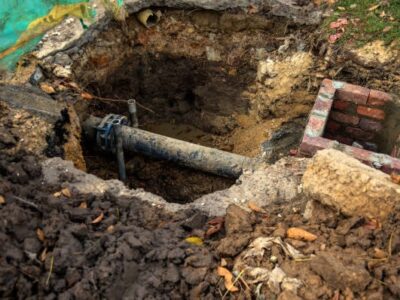Key Takeaways
- Commercial septic systems that are regularly maintained avoid costly repairs and disruptions to operations.
- Advanced technologies, such as smart monitoring and aerobic treatment units, enhance system efficiency and environmental sustainability.
- Compliance with health and environmental regulations is crucial for businesses relying on septic systems.
For businesses that operate in areas without access to municipal sewer lines, efficient wastewater management is a non-negotiable aspect of daily operations. A well-maintained septic system is central to safeguarding employee health, ensuring consistent business performance, and protecting the local environment. One of the most essential components in this process is commercial septic pumping, which is crucial in maintaining systems’ smooth operation and preventing unexpected setbacks. Uninterrupted business activities depend on septic systems that function optimally at all times. Regular commercial septic pumping services help prevent overflows, foul odors, and environmental contamination, which can lead to regulatory violations or costly cleanups. Whether you run a restaurant, hotel, or manufacturing facility, investing in proactive septic care is essential for long-term operational stability.
The Role of Commercial Septic Systems in Business Operations
Industrial and commercial septic systems are built for higher capacity but require specialized maintenance to prevent backups, leaks, and inefficiencies. A customized care plan ensures smooth operations, protects hygiene, and avoids costly disruptions. Regular upkeep is not just about compliance; it is a strategic investment that helps businesses avoid expensive repairs and fulfill their environmental responsibilities. Another crucial aspect is the need for septic pumping in any maintenance protocol. While commercial systems are designed for larger volumes, regular removal of sludge and solids from the tank is necessary to prevent buildups that can clog pipes and lead to system failures.
Advancements in Septic System Technology
New technology has changed the way road companies handle septic system maintenance. Smart monitoring systems with IoT-enabled sensors now provide real-time insights into tank levels, flow rates, and early warning alerts for potential problems. This data-driven approach enables maintenance scheduling before issues escalate, reducing downtime and repair expenses. Furthermore, adopting aerobic treatment units (ATUs) has enhanced treatment efficiency, allowing for the faster breakdown of organic waste and the production of cleaner effluent. These technologies offer advantages that go beyond operational efficiency. Businesses also demonstrate responsible stewardship of community water resources by optimizing the treatment process and minimizing pollutant discharge. These innovations help companies reinforce their reputation as environmentally conscious operators, a growing concern for customers, partners, and regulators alike.
Compliance with Health and Environmental Regulations
Following federal, state, and local rules is very important for all businesses that use septic systems. Inspections, documentation, and regular pumping are required to ensure that effluent meets safety standards and doesn’t pose a risk to local water sources. The risk of contamination and associated liabilities can have far-reaching impacts on public health and a company’s bottom line. Financial and legal risks are reduced by regulatory compliance, and a company’s reputation in the community is maintained. The U.S. Environmental Protection Agency (EPA) guides both compliance and environmental protection, and resources published by the EPA provide regulatory information and best practices for wastewater management. Staying informed and proactive helps businesses maintain operational continuity while contributing to environmental sustainability.
Preventative Maintenance: A Cost-Effective Strategy
A structured preventative maintenance program is an economical way to keep commercial septic systems functioning reliably. Scheduled pumping, inspection, and cleaning can reveal problems early, enabling contractors to resolve minor issues before they develop into major failures. This proactive approach reduces the likelihood of emergencies that can disrupt business operations and result in costly repairs. Ultimately, a well-maintained septic system lasts longer, operates more efficiently, and requires less energy. These efficiencies result in savings by reducing ongoing operational costs and enhancing environmental performance. Adopting a systematic maintenance routine has become standard best practice for businesses that depend on septic infrastructure.
Choosing the Right Septic Service Provider
Selecting an experienced and reputable septic service provider is crucial for businesses seeking peace of mind and optimal system performance. The right provider will offer tailored solutions, routine maintenance, emergency support, and guidance on adopting the latest technologies. Additionally, they stay up-to-date on evolving regulations to ensure your business remains compliant and efficient in wastewater management. A skilled partner will deliver septic services and act as a consultant, helping identify innovations and best practices that improve environmental outcomes and operational efficiency. Seeking out expertise in this area allows businesses to focus on their customers, knowing their essential infrastructure is in capable hands.
Conclusion
Commercial septic systems are a linchpin in modern business operations, ensuring reliable wastewater management, compliance with regulations, and environmental stewardship. Embracing technological advances and structured maintenance plans protects businesses from costly disruptions and supports sustainability efforts. With careful system management and trusted industry partners, companies are better equipped to meet present and future wastewater challenges.
If you want morе еxciting contеnt, visit. Globallyviz.com














Comments